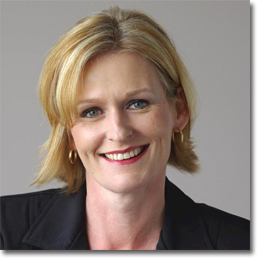5 things to focus on before the Bank of Canada raise rates
The Bank of Canada Governor Stephen Poloz and others have signalled interest rates are headed higher and it could happen as soon as July 12.
It has been seven years since we have seen an interest rate increase, and it has been a long time since investors, savers and borrowers have had to deal with this.
Even if the Bank of Canada doesn’t move next week, the data points suggest it is just a matter of time and likely before the end of the year. The likelihood of a rate hike was 91 per cent as of 10:19 a.m. ET on Friday. Now, to be fair, the rise likely won’t be rapid and could well be bumpy given the recent decline in the price of oil and low inflation numbers – but that doesn’t mean we shouldn’t prepare ourselves.
Here are five things to focus on before rates go higher:
- If you are a saver, you have been crushed in this low interest rate environment. After taxes and inflation, you haven’t been left with much and in many cases you have lost money. One word of caution: higher rates could move slowly so you aren’t likely to see a big bump just yet.
- If you are in a fixed-term locked in mortgage, you may have a little breathing room depending on the maturity. But rising rates are going to make it more costly for those in variable rate mortgages or variable rate loans. This isn’t just about mortgages, time to explore funding options if you are the market for a new car as well. That too could prove to be more costly.
- For Canadians travelling abroad this summer, you should be aware that as rates go higher so goes the Canadian dollar. Things you decided to buy on vacation will also be cheaper. However, on the flip side of the coin, if you are a Canadian company looking to sell goods or services to a foreigner, the stronger Canadian dollar will make it harder to do and that won’t help our exporters or economic growth.
- The Canadian job market has proven to be very resilient. Low rates have allowed consumers to spend and businesses to hire. Higher operating costs could lead to less hiring by business and less spending by consumers. There is a tendency not to worry too much about having a job and servicing your debt levels until you run into trouble and realize you are in financially over your head. Now is the time to set up that emergency fund, obtain a credit card for emergency purposes and even secure a line of credit. Best is never used but invaluable if you need it.
- Assuming you have bonds in your portfolio, conventional wisdom would suggest as rates go higher, bond prices fall. The size of your loss will be driven by how high rates go, yield and the term. For now, you might want to stick to the short end of the curve – corporate bonds over government. You may even want to consider preferred shares. The good news, if you hold a bond fund, the decline you feel short term will likely be made up with higher payouts down the road as the fund acquires newer issues with higher yields.
As I said, the Bank of Canada may not raise rates next week, but the next move will likely be higher – and it will happen sooner than later.?
Comments are closed.










